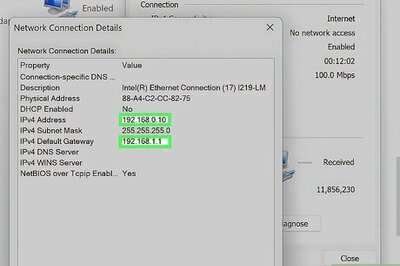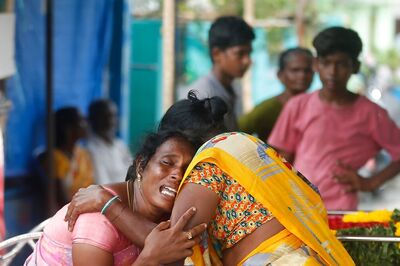
views
The Nyuntam Aay Yojana (Nyay) that the Congress has promised will further exacerbate competitive populism in the election season.
And, if implemented, it will be fiscally deleterious, economically ruinous and morally reprehensible.
By way of this minimum income guarantee scheme, the grand old party has pledged that, if elected to power, it would ensure an income of Rs 72,000 per annum to the poorest families.
Party president Rahul Gandhi said this while addressing the media after the Congress Working Committee meeting in New Delhi on Monday.
Nyay is supposed to reach the 20% of the poorest families. In absolute numbers, it is expected to help five crore households or about 25 crore people, he said.
The minimum income threshold is Rs 12,000, so any family earning less than this will be paid by the government, Gandhi said.
Therefore, if a family could make just, say Rs 6,000 a month, the shortfall of Rs 6,000 will be credited to its account by direct cash transfer. “We have taken into account the fiscal repercussions,” he said.
It is “an extremely powerful, dynamic idea,” Gandhi said. Unfortunately, all bad ideas almost always appear extremely powerful and dynamic in the beginning.
Fascism and Nazism were like that, leading to the Second World War and the unspeakable crimes against humanity. Ditto with socialism and communism, again with calamitous consequences — over 100 million people dead in Russia, China, and other countries.
Good ideas may or may not be implemented, but bad ideas, once articulated, are almost invariably put into action — at least in our country.
It all started with former chief economic adviser Arvind Subramanian mooting a universal basic income (UBI) in Economic Survey 2016-17.
Telangana Chief Minister K Chandrashekar Rao executed it in an altered form, which is said to have yielded rich dividends in in the last Assembly elections.
The PM-Kisan, which was announced in this year’s interim Budget, is also a kind of UBI.
Gandhi has claimed that his party has consulted economists on Nyay. Going by the past experience, the party must have been in touch with socialist experts, like Jean Dreze, under whose tutelage the Congress-led United Progressive Alliance (UPA) practically stalled economic reforms — which couldn’t be started even after five years of its exit.
Nyay will obviously be funded by the public exchequer. But the fiscal situation is already tight.
The fiscal deficit target for 2018-19 breached by 10 basis points — 3.4% of GDP, against the 3.3% budgeted.
For FY20 too, there is a pause on fiscal consolidation. Another revenue-guzzling populist scheme will surely make the matters worse.
It needs to be mentioned here that Nyay, if implemented, would not just be a drain on the exchequer but also harmful for the economy in general. When government remains focused on distribution of wealth, which all poverty eradication programmes do, emphasis on wealth creation goes down.
Worse, the people who gain ascendance — people like Dreze — in such an ecosystem are mostly those who have a pathological hatred for wealth creation.
It has happened in the past. In the late 1960s and early 1970s when Prime Minister Indira Gandhi relied on leftists, the results were bank and insurance nationalisation, 98% personal income tax, stringent regulations, arrested growth and development, monumental corruption and perpetuation of poverty.
Exactly the opposite of her 1971 election slogan, ‘garibi hatao’. The UPA rule during 10 years (2004-14) was, in a way, 1970s’ redux. The consequences were again unpleasant for the bottom of the pyramid.
Contrast this with five years under Atal Bihari Vajpayee (1999-2004), when as many as six crore jobs were created with an average growth rate of 5.7%.
On the other hand, during 2004-14, job generation was in the region of 1.5 crore, despite the fact that the average growth rate was above 7.5% under Manmohan Singh. These, by the way, are the numbers given by the Planning Commission under the UPA.
Under Prime Minister Narendra Modi, with emphasis on populism and no reforms, employment generation seems to have halted.
In the ultimate analysis, what helps the poor is brisk economic activity, that is, more investment, leading to new enterprises and expansion of the existing ones. This alone creates jobs (and not mirages like Nrega).
This circle got broken when the shadow of the Left fell on the UPA. Even though communists parted ways with the UPA in 2008, their influence remained, it still is.
As Shakespeare wrote, the evil that men do lives after them…
Nyay-like schemes are not just an economic evil, they are also morally degrading.
They make serfs out of free individuals, making them perpetually look askance at the gigantic feudal lord called the Indian state.
Politicians and salon socialists who devise such programmes have a very condescending attitude towards the poor. They don’t treat the poor as self-respecting human beings capable of surviving and thriving on their own.
They regard them as eternally dependent imbeciles who need succor till the end of time.
So, our political masters insist on taxpayer-funded populism, on schemes like Nyay.
Winston S Churchill once said, “I contend that for a nation to try to tax itself into prosperity is like a man standing in a bucket and trying to lift himself up by the handle.” What is impossible in reality is possible in Indian politics; after all, it is the art of the impossible.
(The author is Editor, Power Politics. Views expressed are personal)




















Comments
0 comment